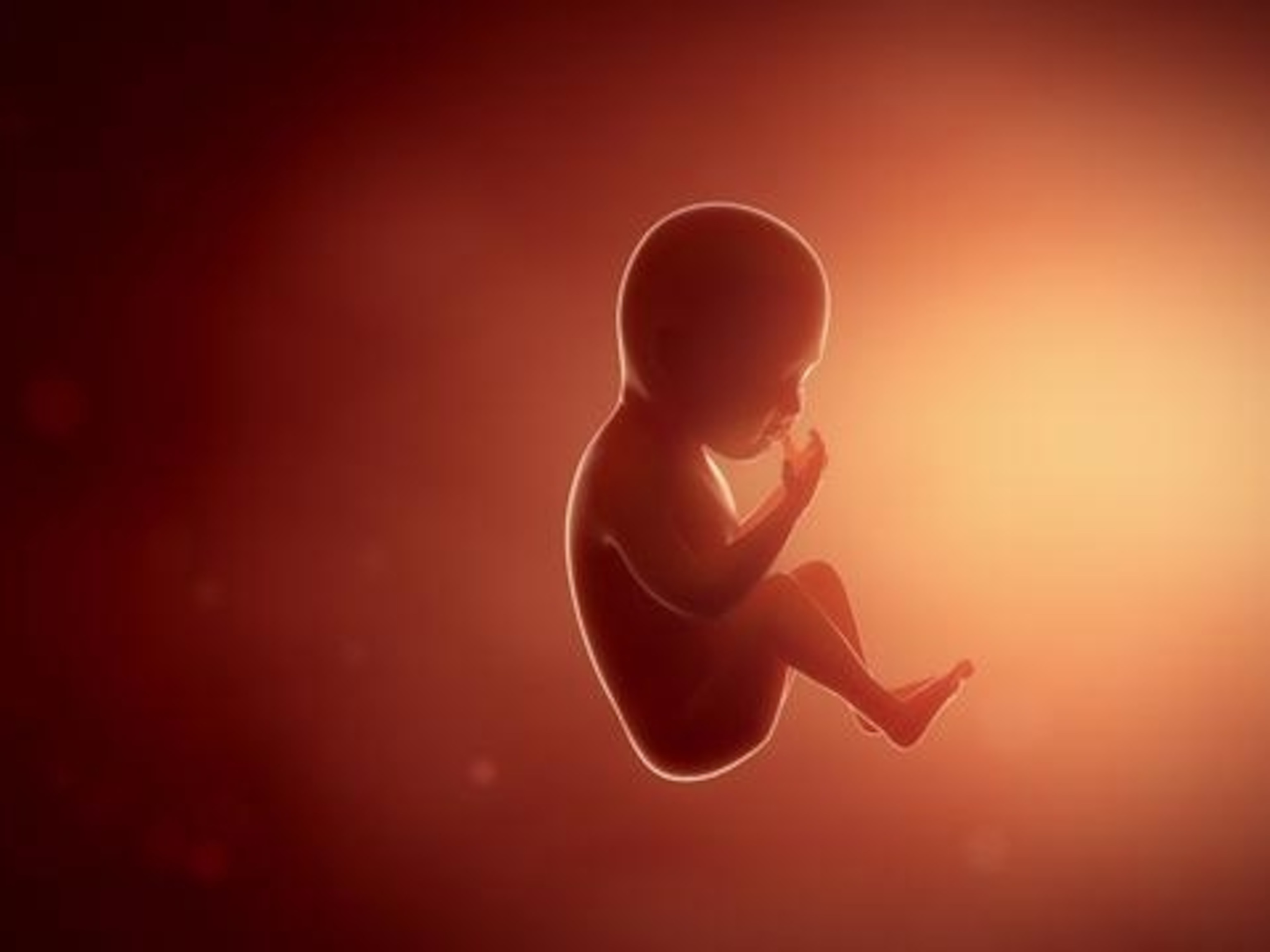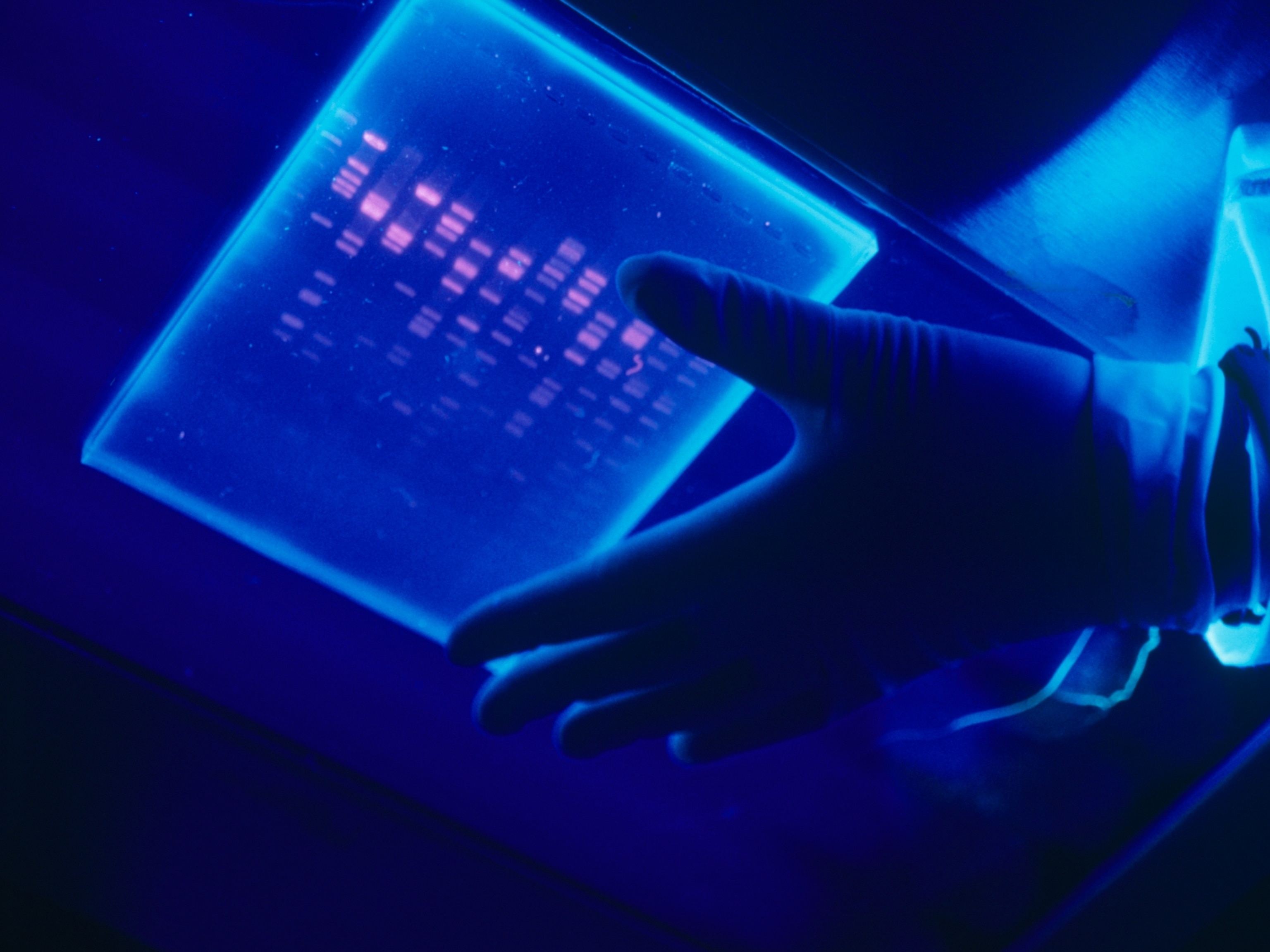
Why Human Penises Lost Their Spines
DNA study offers clues to "impenetrable mystery" of evolution, expert says.
Men have lost the DNA code that once made human penises spiny, according to a new analysis of the human genome.
Penile spines, which are still present in several modern animals, are usually small barbs of keratin—a type of hard tissue—that line the outside of the organ.
The prehistoric male enhancement existed in the common ancestor of chimpanzees and humans, which lived about six million years ago, according to the gene analysis.
But the "penile spine enhancer" code disappeared from human genes before our common ancestor split into modern humans and Neanderthals about 700,000 years ago, said study co-author Gill Bejerano, a developmental biologist at Stanford University in California.
(See pictures: "'Torture' Phalluses Give Beetles Breeding Boost.")
In total, the scientists found at least 510 DNA "deletions" that have occurred during human evolution by comparing the human genome with those of a range of modern and extinct species—including chimps and Neanderthals.
These deletions have brought about various changes to our bodies, for instance, boosting our brain sizes and stripping our faces of sensory whiskers. (Explore an interactive of the human body.)
In addition to the penile spines, "we think there are probably 500 fascinating other stories out there—that's part of the excitement of this paper," Bejerano said.
DNA "Switches" Can Have Big Effects
The DNA deletions—actually the result of rare cell mutations—do not hinder the overall function of a gene, the study authors noted. (Get a genetics overview.)
"Think about it as a lightbulb that's controlled by lots of different switches," said study co-author David Kingsley, also of Stanford.
"If you smash the lightbulb, the lights go out," he said. But "if you just remove an individual switch, [you've] altered the response to one particular input. That may produce a big effect for that little circuit, but it still preserves lots of other things."
Co-author Bejerano emphasized that one of the paper's key messages is that sometimes small changes to DNA sequences can actually lead to larger, more elaborate structures in organisms, such as more complex brains.
To the University of Sheffield's Rhonda Snook, that concept is as interesting as the "titillating" penis findings.
Some "might think [the switches] are marginal," said Snook, who was not involved in the new research.
But these small tweaks "could have potentially really profound effects on the way that organisms evolve from their ancestors."
Monogamy Led to Simpler Penises?
For instance, such minor genetic shifts have made human penises smoother and simpler over time, according to the study, which appears tomorrow in the journal Nature.
This may be because men no longer need the additional hardware. In some modern animals, such as domestic cats, penile spines help males fertilize females when sperm competition inside the female is fierce.
For instance, the spines can break through copulatory plugs, or coagulated secretions of fluids placed inside the female by other males to prevent different sperm from fertilizing the egg.
(See "Sperm Recognize 'Brothers,' Team Up for Speed.")
But most women today are monogamous, and the males "are not just present during the competitive act of fertilization—they establish long-term relationships with females," Kingsley said.
Snook, who studies the evolution of sperm form and function, said theories linking simpler genitalia to monogamy are still tenuous.
For instance, a phylogenetic analysis—a study comparing the presence or absence of spiny penises in different organisms over time—would offer more insight.
Human Evolution an "Impenetrable Mystery"
Overall, this type of sophisticated DNA research became possible just ten years ago, when the human genome was published, Snook noted.
"We've got just such an amazing power now to know a lot more about how evolution really occurs and how it changes," she said.
(Related: "Human Genome Shows Proof of Recent Evolution, Survey Finds.")
Study co-author Kingsley added: "We happen to live in this magic time where we have the complete genome sequence of ourselves and our relatives."
Finding out how we became who we are "can be a huge, impenetrable mystery," he said, but we're "beginning to tease out some of the molecular differences that make us human."
You May Also Like
Go Further
Animals
- This ‘saber-toothed’ salmon wasn’t quite what we thoughtThis ‘saber-toothed’ salmon wasn’t quite what we thought
- Why this rhino-zebra friendship makes perfect senseWhy this rhino-zebra friendship makes perfect sense
- When did bioluminescence evolve? It’s older than we thought.When did bioluminescence evolve? It’s older than we thought.
- Soy, skim … spider. Are any of these technically milk?Soy, skim … spider. Are any of these technically milk?
- This pristine piece of the Amazon shows nature’s resilienceThis pristine piece of the Amazon shows nature’s resilience
Environment
- This pristine piece of the Amazon shows nature’s resilienceThis pristine piece of the Amazon shows nature’s resilience
- Listen to 30 years of climate change transformed into haunting musicListen to 30 years of climate change transformed into haunting music
- This ancient society tried to stop El Niño—with child sacrificeThis ancient society tried to stop El Niño—with child sacrifice
- U.S. plans to clean its drinking water. What does that mean?U.S. plans to clean its drinking water. What does that mean?
History & Culture
- Meet the original members of the tortured poets departmentMeet the original members of the tortured poets department
- Séances at the White House? Why these first ladies turned to the occultSéances at the White House? Why these first ladies turned to the occult
- Gambling is everywhere now. When is that a problem?Gambling is everywhere now. When is that a problem?
- Beauty is pain—at least it was in 17th-century SpainBeauty is pain—at least it was in 17th-century Spain
- The real spies who inspired ‘The Ministry of Ungentlemanly Warfare’The real spies who inspired ‘The Ministry of Ungentlemanly Warfare’
Science
- Here's how astronomers found one of the rarest phenomenons in spaceHere's how astronomers found one of the rarest phenomenons in space
- Not an extrovert or introvert? There’s a word for that.Not an extrovert or introvert? There’s a word for that.
- NASA has a plan to clean up space junk—but is going green enough?NASA has a plan to clean up space junk—but is going green enough?
- Soy, skim … spider. Are any of these technically milk?Soy, skim … spider. Are any of these technically milk?
- Can aspirin help protect against colorectal cancers?Can aspirin help protect against colorectal cancers?
Travel
- What it's like to hike the Camino del Mayab in MexicoWhat it's like to hike the Camino del Mayab in Mexico
- Is this small English town Yorkshire's culinary capital?Is this small English town Yorkshire's culinary capital?
- This chef is taking Indian cuisine in a bold new directionThis chef is taking Indian cuisine in a bold new direction
- Follow in the footsteps of Robin Hood in Sherwood ForestFollow in the footsteps of Robin Hood in Sherwood Forest




